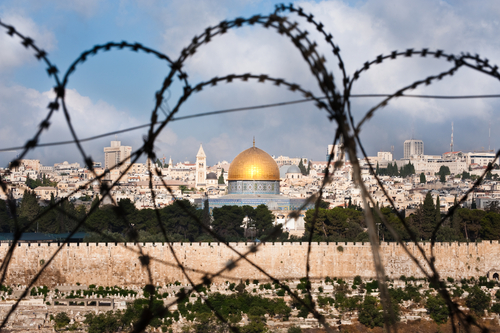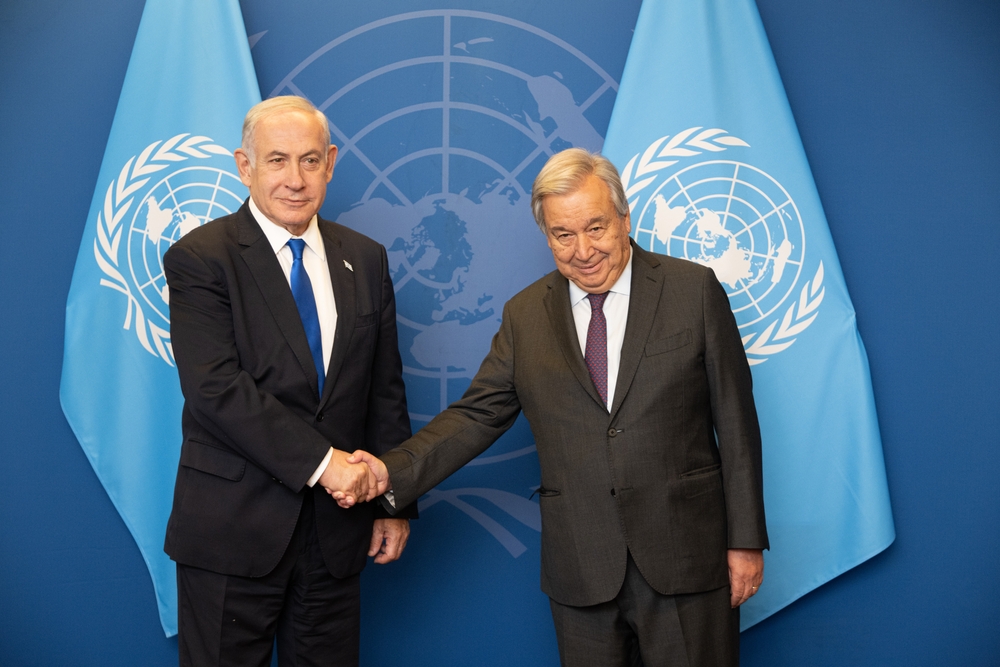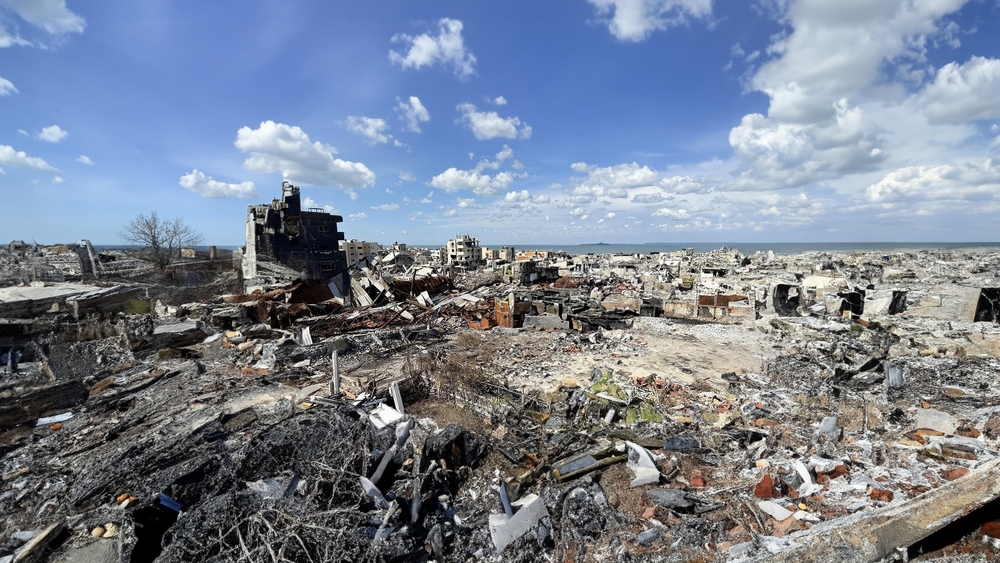
The escalation of the conflict in the Middle East: interpreting the dynamics of the hottest front of the global “total war”.
The ongoing military actions and retaliatory attacks between Israel and Iran have escalated the conflict in the Middle East to a critical point. This situation is extremely precarious and has significant implications for regional, local, and global stability.
In April, Iran launched a historic war campaign against Israel, using over 200 drones and missiles in what they claimed was a necessary and immediate defense against Israeli aggression. Iran cited the killing of 7 Iranian military commanders on Syrian territory in an air attack as the reason for their actions.
 Antonio Guterres, Secretary General of the United Nations, has convened an extraordinary Security Council to address the worsening situation, underlining the duty on both sides to demonstrate restraint and intelligence, moving away from the brink of full-scale war. The resulting violence would have repercussions not only on the Middle East but would destabilize global peace and security, at a time when significant war fronts such as Ukraine and Taiwan are already open, even if that of Taiwan today is more a tug of war rather than a real conflict.
Antonio Guterres, Secretary General of the United Nations, has convened an extraordinary Security Council to address the worsening situation, underlining the duty on both sides to demonstrate restraint and intelligence, moving away from the brink of full-scale war. The resulting violence would have repercussions not only on the Middle East but would destabilize global peace and security, at a time when significant war fronts such as Ukraine and Taiwan are already open, even if that of Taiwan today is more a tug of war rather than a real conflict.
The current situation marks a shift towards direct engagement by Iran, which has openly admitted that it wants to cut back on strategic patience; from now on, responses to Israeli attacks will be direct and more aggressive. The Biden administration’s timely reaction urged Israel to avoid the point of no return. It is also particularly cautious about the involvement of the political party Hezbollah which could complicate the national security landscape.
Further complicating the situation is the ongoing violence in Gaza and the West Bank and the polio epidemic that has struck the population in recent days. Furthermore, the effectiveness of the UN Security Council in mediating these tensions has been called into question: the Council’s inability to propose workable solutions or enforce international law has created a vacuum that could encourage unilateral actions by States that feel threatened, both the Israeli one and the Palestinian counterpart. This lack of a cohesive international response could further exacerbate the situation, pushing the region closer to significant conflict.
The role of the two Western supercontinents, the United States and Europe, is crucial at this moment in outlining the trajectory of the conflict. As the situation evolves, the future of the stalled nuclear deal with Iran hangs in the balance, and if Israel’s actions provoke a strong Iranian response, it could derail any potential diplomatic engagement.
 “In this period of war and uncertainty, it is important that Israel’s enemies know that America and Israel are united, today, tomorrow, and always,” said Israeli Prime Minister Benjamin Netanyahu on the eve of his trip to the US, after the president’s resignation Joe Biden as the Democratic candidate for the US presidential elections. The two presidents will meet on Thursday in Washington to discuss positions on the conflict in Gaza. In this regard, Netanyahu has already declared that he has no intention of giving up the victory over Hamas. At the same time, he joins in the condolences for the two deceased hostages among the 72 still imprisoned by Hamas, news reported by Palestinian networks already in March but never confirmed, until now, by Israeli news.
“In this period of war and uncertainty, it is important that Israel’s enemies know that America and Israel are united, today, tomorrow, and always,” said Israeli Prime Minister Benjamin Netanyahu on the eve of his trip to the US, after the president’s resignation Joe Biden as the Democratic candidate for the US presidential elections. The two presidents will meet on Thursday in Washington to discuss positions on the conflict in Gaza. In this regard, Netanyahu has already declared that he has no intention of giving up the victory over Hamas. At the same time, he joins in the condolences for the two deceased hostages among the 72 still imprisoned by Hamas, news reported by Palestinian networks already in March but never confirmed, until now, by Israeli news.
On July 22, the day of Prime Minister Netanyahu’s departure, the population east of Khan Yunis was forced to abandon their homes, despite this, 14 victims were killed in the bombing of the city.
The escalation of the conflict in the Middle East is a critical moment that presents an opportunity for all parties involved to prioritize diplomacy and seek peaceful solutions. As tensions continue to rise, there is an urgent need to prevent miscalculations and further violence. The international community must unite in a concerted effort to address the “power vacuum” and prioritize dialogue to avert a catastrophic conflict that could have far-reaching implications on global stability. This critical moment calls for a constructive approach that emphasizes the essential role of diplomacy and de-escalation to ensure a positive path forward for the region and beyond.



 Subscribe
Subscribe